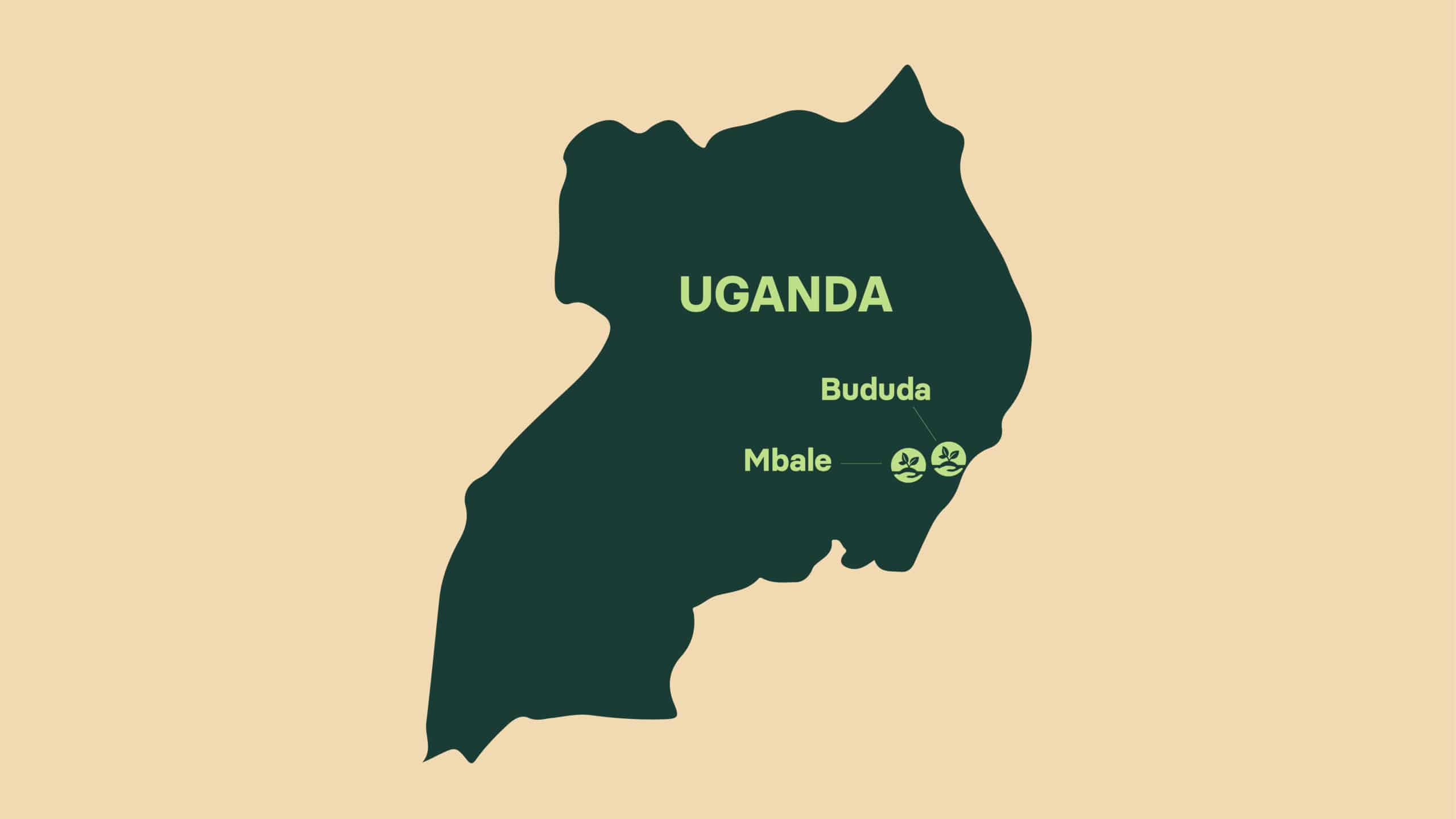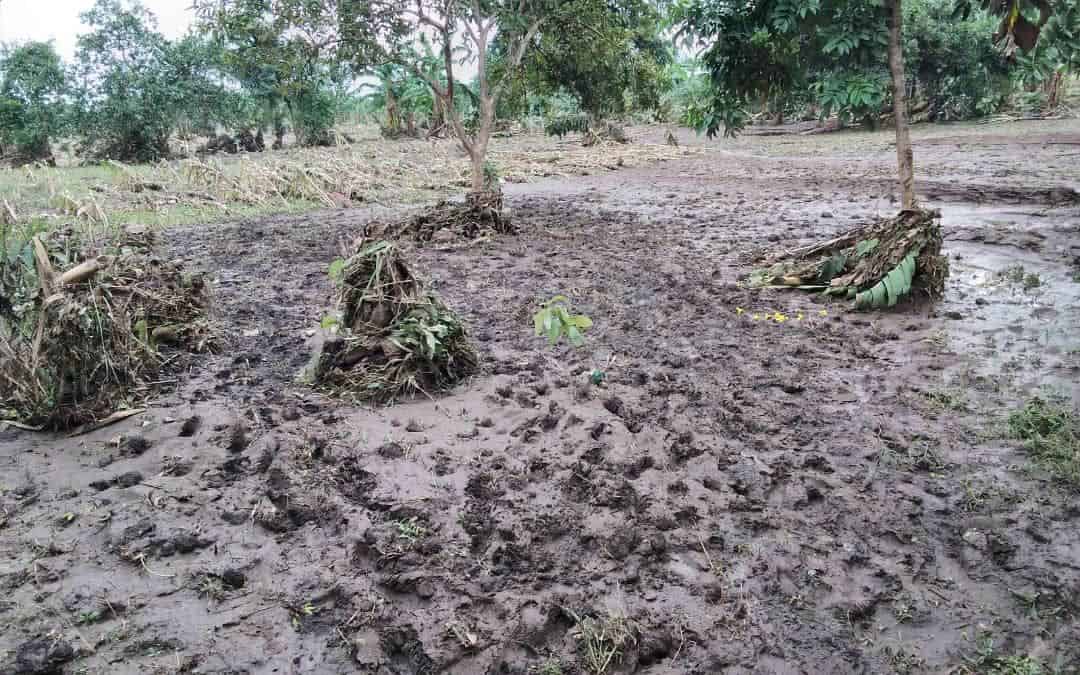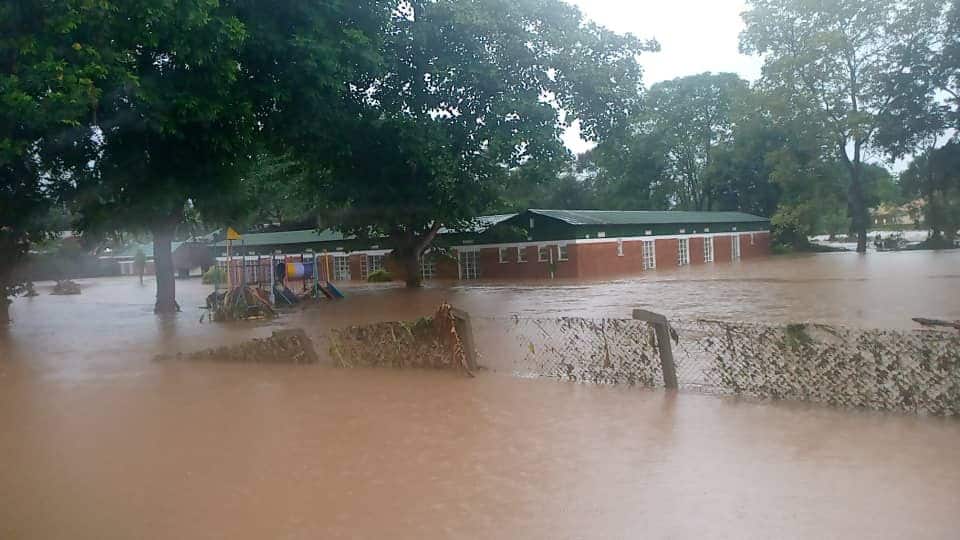Farmers Assess Lasting Damage after Deadly Flooding in Mbale and Landslides in Bududa
KAMPALA (August 10, 2022) — Crops are under water or entirely washed away in portions of Uganda’s Mount Elgon region after heavy rains triggered deadly flooding in Mbale and devastating landslides in Bududa over the past weeks.
“Last weekend, Mbale city started receiving a lot of rain and the flooding started,” says Trees for the Future Monitoring and Evaluation Coordinator Lydia Muyama. “Many homes were destroyed, hundreds have been displaced. The number of souls lost is near 30.”

Regenerative agroforestry nonprofit Trees for the Future (TREES) works with farmers in Mbale and Bududa. Farmers are trained to establish sustainable farming systems called Forest Gardens. Made up of thousands of trees and dozens of species, Forest Gardens are more resilient to flooding than the typical modern, industrialized farm. Mountain sides and steep slopes in the region have long been settled by farmers, but unsustainable practices, like banana monocrops, have destabilized the soils, making landslides more likely.
“Banana crops are common in the region. They have very shallow root systems and don’t hold the soil in place. Forest Garden farmers intercrop bananas with agroforestry trees to better stabilize the soils,” says TREES Program Coordinator Enock Makobi, “but Forest Gardens can only be as protected as the mountain above them.”

As rains persist through the August rainy season and many roads remain closed, Makobi, Muyama, and their colleagues are working to communicate with the more than 900 TREES Forest Garden farmers in the affected areas.
“We need to support the farmers. We need to establish the actual losses: the trees, the vegetables, the tree nurseries. Not to mention the psychological toll this will have on these families,” Makobi says.
Beyond their work in Forest Garden training, TREES often works with local and regional agencies to restore swathes of degraded land by planting trees on public land upslope from the farmers’ Forest Gardens. As the team assesses the damage and supports farmers in the program, they will consider future initiatives to further restore Eastern Uganda’s farmlands and the degraded mountainsides situated above the farmland.
“Long term solutions are key in ensuring farmer resilience and adaptation as climate-fueled disasters increase,” says TREES Director of Programs Brandy Lellou. “The Forest Garden Approach is designed and implemented to achieve resilience, but this takes time. While implementing, we must also address immediate needs as disasters arise. We are committed to doing everything we can to support communities in their time of need and help them grow increasingly more protected from future events.”
Learn more about TREES’ work here.
